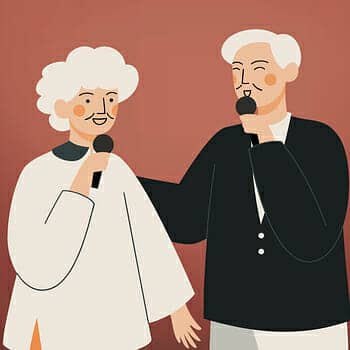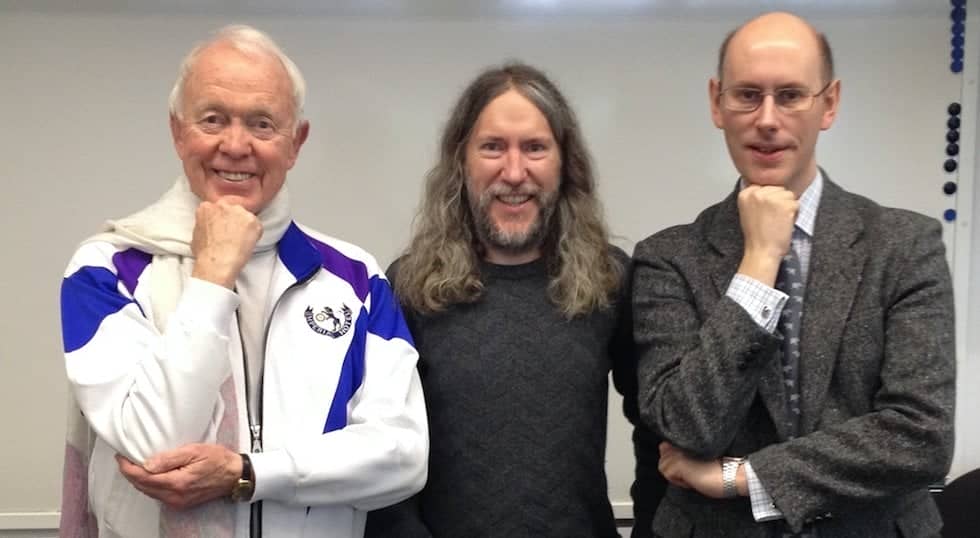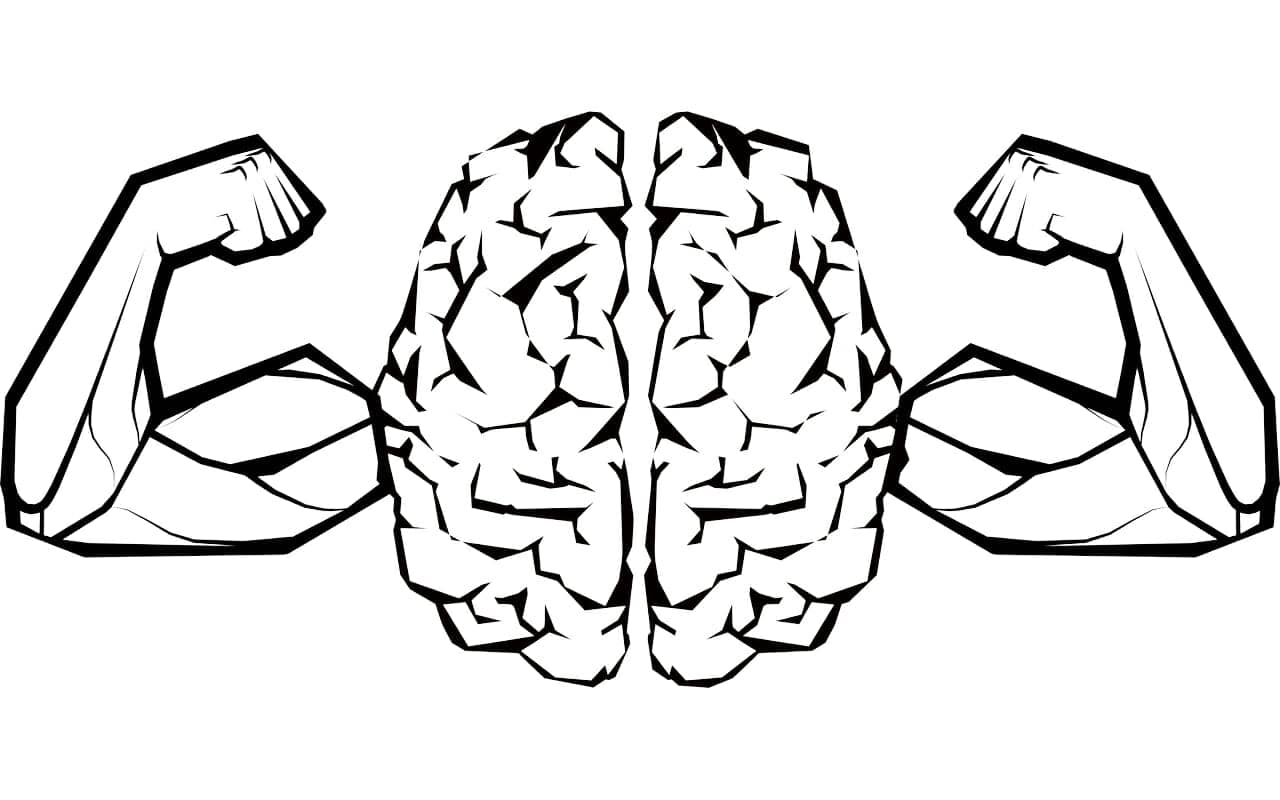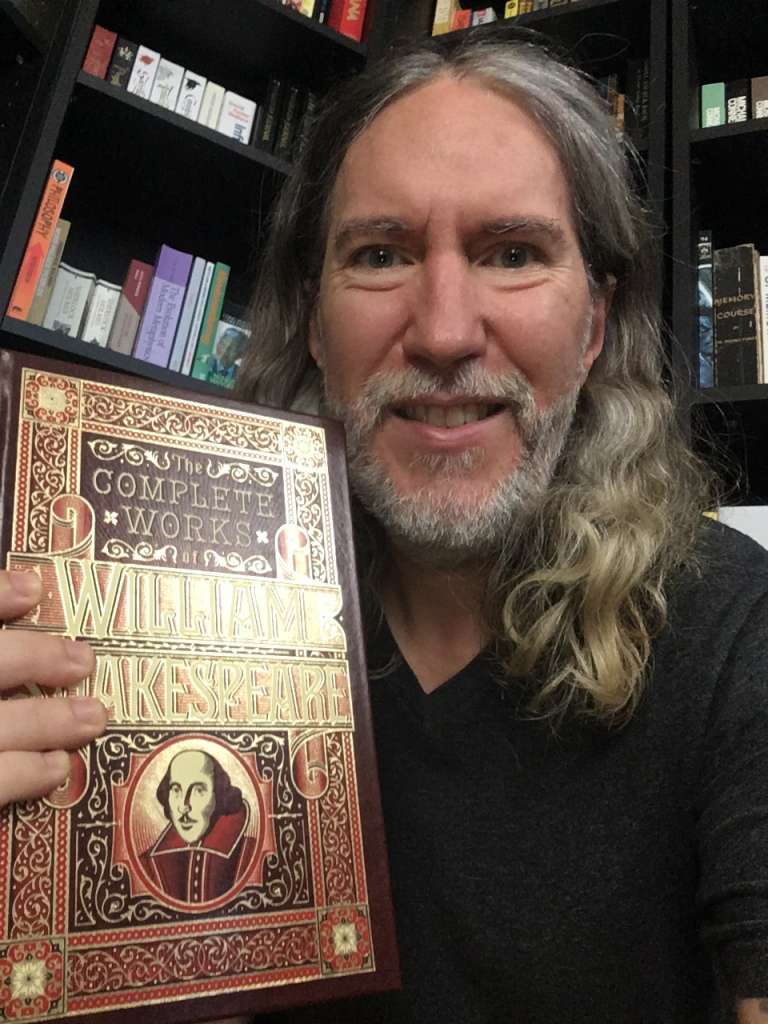 Worried about losing mental sharpness as you age?
Worried about losing mental sharpness as you age?
Me too.
But I don’t rest on my worry alone. I take specific actions known to have a high likelihood of preserving my mental acuity as I age.
Would you like the exact set of activities I’m using?
They’re all free (or can be) and definitely don’t require you to shell out for a mental acuity test.
And the best part is that each of these simple ways to improve your mental acuity are interesting, fun and provide many other rewards.
Ready?
Let’s dive in!
Is Losing Your Mental Sharpness Inevitable?
No, but it is is possible.
That’s because some forms of Alzheimer’s and other issues are hereditary.
But assuming you’re not facing an inherited condition, there’s every reason to believe that the tactics you’re about to discover will help you preserve your brainpower.
You may also be able to increase it, possibly even your IQ too.
The Main Components of Mental Acuity & How They Fade Overtime
So what is “mental acuity” anyway?
One study defines it as “mental performance.” As the researchers note, the components include:
- Logical reasoning
- Basic math
- Remembering the location of objects and information in space
These are key cognitive abilities, and they were looking for speed and accuracy when asking questions of the participants in the study.
Another study looked at acuity as a mental health factor, in terms of the presence or absence of depression.
You can also think of mental acuity in terms of mental strength, which involves grit, determination and your ability to think critically.
Why do these skills fade?
Simple:
As we age, parts of the human brain shrink in size. In consequence, neurons might not “talk” to each other as quickly as they used to when you were younger.
However, this is not guaranteed. Research shows that the brain can continue to evolve and improve with age, especially when you take steps to encourage neuroplasticity.
What are those steps?
Let’s have a look.
How To Improve Mental Acuity & Remember More
Have you ever heard about Tony Buzan, creator of the World Memory Championships? Before he passed away, I was blessed to know him personally. He was before the sharpest senior member of our society I’ve ever known.
Why?
Well, he kept physically active, for one thing. Check out the gym clothes he was wearing when we met with Phil Chambers in the UK.

He had just come in from rowing!
Plus, he told lots of stories while socializing and quoting wisdom from the top of his head. Sometimes in foreign languages.
Apart from the obvious matter of getting lots of physical exercise, let’s unpack the other clues Buzan left us and highlight other simple and fun activities.
One: Lifelong Language Learning
The scientific studies into bilingualism make it clear that learning other languages helps the brain create cognitive reserve. This means that your brain will protect itself and potentially fend off issues like Alzheimer’s or Dementia.
Studying languages also gives you opportunities to be more social and do more reading.
If language learning really isn’t for you, at least consider improving your vocabulary. I memorize new words almost every day, and the benefits are incredible.
Two: Reading Challenges
Many people want to read faster, which is sometimes possible.
But the better thing to do is read more slowly and with intention.
Put some thought into a long term reading goal. For example, go through all of Shakespeare, something I’m currently doing.
It doesn’t have to be Shakespeare. The point is to have a structured reading goal that develops massive knowledge of one topic.
As I read the Bard, I follow up by reading articles about each play and watching lectures about them on YouTube. This simple process helps my brain not only understand one playwright better, but also his entire era and people still writing today.
In your case, you might pick all the symphonies of Beethoven to do a deep-dive reading project on, or a particular historical period.
The point is to go deep and practice your focus while reading for the mental sharpness this form of project-focused reading brings.
Three: Play Music
It’s well known that the deliberate practice involved in playing an instrument provides a high level of brain exercise.
I play bass myself and continue to study the ins-and-outs of a wide variety of musical styles.
I also continue to study music theory by expanding my knowledge of the circle of fifths and all the key signatures.

But you don’t have to play an instrument.
You can get many brain benefits from singing.
For example, one study found that people caring for family members with cancer experienced reduced anxiety after singing with a choir just once a week.
Make no mistake: Anxiety and stress can reduce your mental fitness.
So memorize some lyrics and give this simple activity a try to boost yours.
Four: Meditation Mastery
Dopamine resetting has been getting a lot of discussion recently.
But so far, there are no shortcuts. Certainly none so impactful as sitting just to sit, or quietly following your own breath.
And it’s not too late to start. As one study found, even the elderly can start meditating with no prior experience and get results.
To master meditation, all you have to do is show up and practice, ideally at least four times per week. In the context of mental acuity, I recommend focusing on concentration meditations above all.
Five: Select Games Wisely
A lot of people ask me about brain games for adults and apps like Cogmed.
Frankly, when it comes to cognitive training for adults, it’s always “buyer beware” when it comes to these products.
Myself, I try to keep the time I spend on apps very limited. And when I play games, I tend to make them social experiences so I get the brain benefits of being with others.
You’ll also want to be cautious around activities like crossword puzzles, which may encourage cheating. That will give you the opposite of the active recall you want in order to keep your brain sharp.
Six: Become a Philosopher
Some people shy away from philosophy books. But learning to ask philosophical questions helps you weed out bad thinking.
Even just coming to understand how philosophy is properly defined will improve your mental acuity.
From there, you can get into activities like reflective thinking through the use of philosophical questioning.
As I discussed in my TEDx Talk, learning to question everything in a philosophical matter improved my life in many ways.
Seven: Reduce Your Stress
Stress can harm your brain, so anything you can do to reduce it in your life will be a win for your mental sharpness.
Some quick wins have already been discussed, such as getting enough exercise.
Sleep is also critical, alongside choosing memory friendly foods, herbs and teas.
Lifestyle changes are also worth looking at.
For example, over a decade ago I decided to only live in places with excellent transit. This removed all the hassles involved in owning a car completely from my life. I don’t miss any of that stuff at all, and if I need a car, I can rent one.
Simple hacks like moving to more convenient areas or paying down debts aren’t necessarily easy. But if you’re willing to make the change, you’ll probably thank yourself for it.
Eight: Train Your Memory
Did you know that many people use ancient memory techniques to keep their minds sharp even in the 21st century?
Take James Gerwing, for example. As a school administrator, he started using the art of memory to help him score 90% and higher on his Latin exams. (Remember, learning a language is one of the best things you can do to stop losing mental sharpness.)
Then, in 2019, James become the Canadian memory champion shortly after retiring as a school administrator. He’s now enjoying an incredible retirement thanks to the mental fitness these activities have provided. I often see his posts on Facebook and he looks like he’s having a blast!
In a slightly different, but equally hopeful vein, Nic Castle retired from the police force with some unfortunately damage. Fortunately, using memory techniques helped him reduce the PTSD symptoms created by the job.
The Truth About Mental Acuity
Although I believe that each and every activity I’ve outlined above will help you, you have to be the judge.
Experiment as widely as you can, and ideally keep a journal of your activities. This physical record will help create observations that you can use to sharpen your mind even further.
For example, you might notice that you’re drinking too much. This can lead to reducing your alcohol intake, which is another great way to preserve your brain health over the long term.
And taking notes about what you’re reading can keep the ways you’re challenging your brain going. For example, I often leave little puzzles for my future self to solve in my notebooks. This makes for a lot of intrigue that stimulates the brain over the years.
If you enjoyed this information and would like more help, get my free memory improvement course:
It will help you keep growing and glowing as you age, just like Tony Buzan.
I’m certainly doing all I can so I can keep my brain as focused, sharp and present as he always was.
So what do you say?
Are you ready for a lifetime of incredible mental fitness?
Make it happen!
Related Posts
- Working Memory: How Does It Work? (Plus 3 Easy Ways To Keep It Sharp)
What is working memory and how does it work? Can you train your brain to…
- 5 Memory Palace Examples To Improve Your Memory Training Practice
Here are 5 Memory Palace examples that will improve your memory training practice quickly, even…
- Memory Athlete Braden Adams On The Benefits Of Memory Competition
Braden Adams is one of the most impressive memory athletes of recent times. Learn to…






